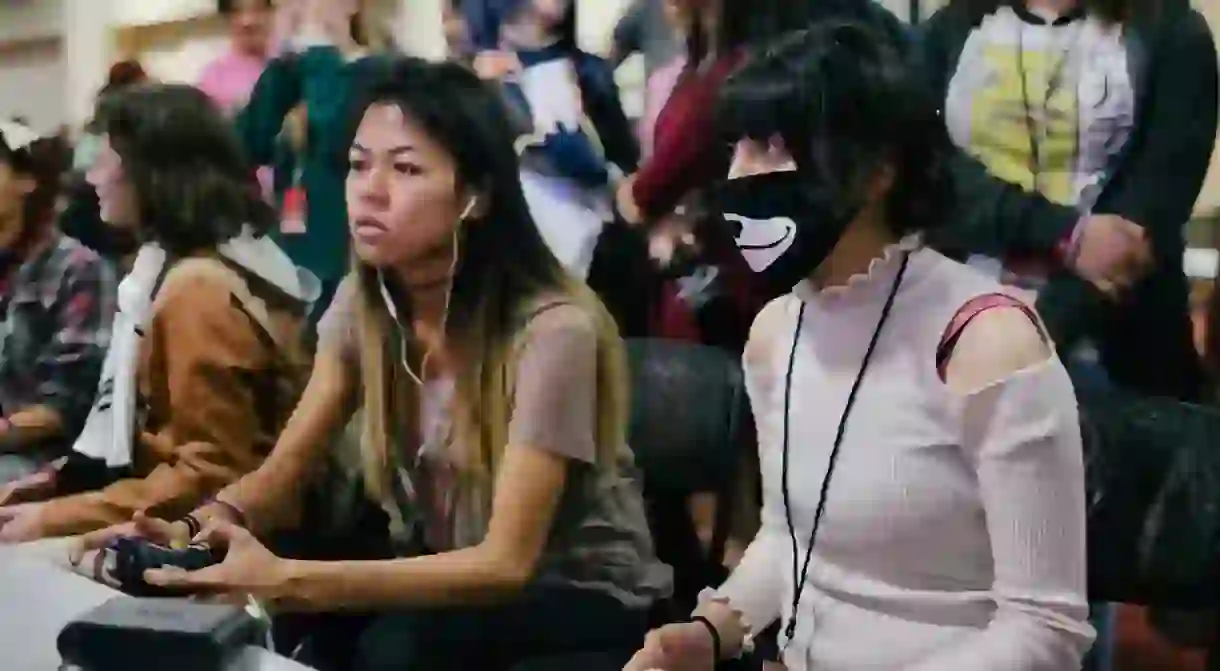'Smash Sisters' Encourages Women Across America to Play Video Games

Imagine walking into a venue and feeling like an outcast. The majority of the people passing by look nothing like you. Your eyes scan the room searching for someone, anyone to relate to. More people walk by staring at you quizzically, almost wondering why you’re there. You try to blend in.
Esports is a billion-dollar industry worldwide, but more than 70 percent of the fanbase is male, according to recent research conducted by Nielsen. The atmosphere at gaming events isn’t always the most inviting for female gamers. It’s part of the reason Emily Sun co-created Smash Sisters, a series of women’s crew battles featuring Super Smash Bros.
“I think there was this pent-up demand for women who had seen other women at tournaments and events where it would be 90 percent male,” Sun said. “You see other women but you don’t necessarily have a reason to approach them other than, ‘Hey, you’re a girl too. Let’s be friends.’ Now we have this avenue to really engage with each other and become friends.”

The Smash Sisters’ debut event was at Genesis 3 in January 2016 in San Jose. The group and its co-founders, Lil “Milktea” Chen and Sun, have since been featured by Yahoo! Sports, Red Bull, ESPN, Mashable, and Kotaku, which has helped spread word about their initiative. The goal of Smash Sisters, which Sun wanted to make clear, isn’t to segregate female gamers. The women’s-only crew hopes to increase awareness and create a comfortable environment by having side events at larger tournaments.
“I don’t think female-only leagues, circuits or tournaments are a good idea,” she said. “I’m a huge fan of side events integrated inside the main tournament. There’s a nuanced distinction there that people have gotten wrong. It’s a complex issue I think that needs to be approached delicately.”

Sun, a sales analytics manager at Take-Two Interactive, has been interested in video games her whole life. Her older sisters were both gamers and they would play Super Mario Bros. and Super Mario Bros. 3 on Nintendo. Their mother, Lin, gave Emily a Nintendo 64 console equipped with Super Smash Bros. for Christmas in 1996. It’s still her favorite game to this day.
Sun got into the competitive gaming scene when she was in high school. Her and her friends, most of whom were boys, would attend tournaments. Sun eventually wanted more female friends, which she lacked by nature of the gaming community, and thus began Smash Sisters.
“I had been very much the only girl then once I got girl friends and starting hanging out with more girls, I really enjoyed the female energy,” she said.

It’s not like girls and women aren’t into esports, their involvement just pales in comparison to the male demographic. Nearly 1 in 4 female fans views a live stream at least weekly, according to Nielsen. But the data on female esports fans and players isn’t as involved, but Sun believes diving into it and experimenting to see what hits home is better than making generalizations about the audience.
“If you try something and fail at it, it’s better because there’s going to be more learning from that,” Sun said. “I’d rather someone try and maybe they can do it in a great or successful way.”
Either way, Sun wants to see more people get into gaming regardless of gender.
“Gaming is sick,” she said. “I’m glad more people are getting interested in it and I hope more people continue to do that.”













